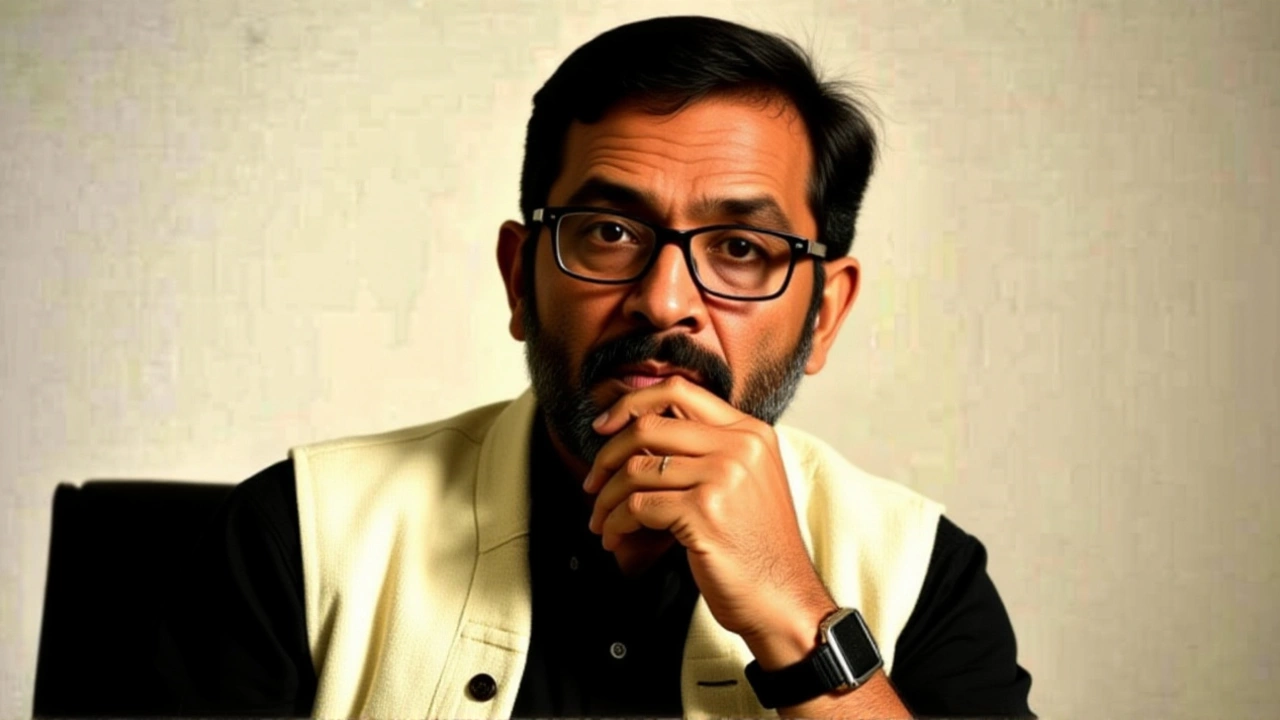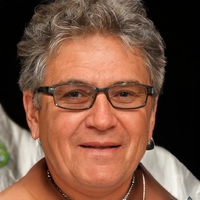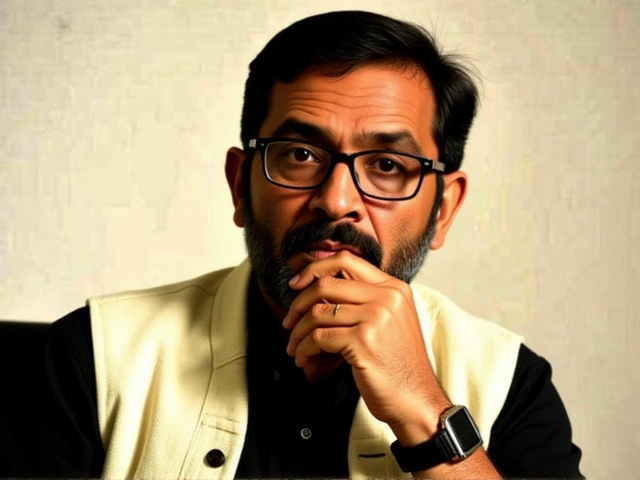Abhijit Banerjee Wins 2019 Nobel in Economics for Poverty Experiments
When Abhijit Vinayak Banerjee, a professor of economics at MIT, was announced as a co‑winner of the 2019 Nobel Prize in Economic Sciences, the world took notice. The award, shared with Esther Duflo and Michael Kremer, recognized "experimental approaches to reducing global poverty" – a phrase that has become a rallying cry for development economists everywhere.
The ceremony took place on 11 December 2019 in Stockholm, where King Carl XVI Gustaf presented the medals on behalf of the Royal Swedish Academy of Sciences. Banerjee, dressed in a traditional Bengali white dhoti with a gold border, a cream kurta and a black bandhgala jacket, stood beside his wife and fellow laureate Duflo – the first Indian‑American couple to share the economics Nobel.
The Nobel Announcement and Ceremony
On 14 October 2019, the Academy released a press statement saying the trio’s field experiments had "transformed development economics". The award carried a cash prize of 9 million Swedish kronor – roughly $916,800 – split equally among the three laureates. Nobel Prize in Economic Sciences laureates typically appear on a global stage, but Banerjee’s moment felt personal: he later told MIT News that winning was “almost surreal” and that “few of us ever get a chance to see our work celebrated like this.”
Experimental Approach That Won the Prize
Banerjee, Duflo and Kremer pioneered randomized controlled trials (RCTs) in poor communities, borrowing a technique from medical research. Their work showed, for example, that providing textbooks to Kenyan schools did **not** improve test scores, while offering small cash incentives to parents dramatically increased school attendance. In a 2008 field study in Karnataka, India, they found that giving teachers performance‑based bonuses boosted student learning by up to 30 percent.
These findings upset traditional aid models that assumed more funding automatically meant better outcomes. "We discovered that many well‑intentioned policies were, in fact, wastes of scarce resources," Banerjee explained in a 2017 interview. The evidence base they built paved the way for what is now called "evidence‑based policy".
The Role of J‑PAL and Global Impact
In 2003, Banerjee and Duflo co‑founded the Abdul Latif Jameel Poverty Action Lab (J‑PAL) at MIT. J‑PAL now operates in over 50 countries, partnering with governments, NGOs and foundations to test anti‑poverty interventions. One notable project, launched in 2015 in Uganda, evaluated the impact of giving pregnant women free mosquito nets; the trial led to a national policy shift that saved thousands of lives.
Michael Kremer’s work on deworming in Kenya, another J‑PAL‑sponsored study, demonstrated that simply providing a single dose of medication to schoolchildren could increase future earnings by up to 25%. Such results have been cited in policy briefs from the World Bank, the United Nations and even the U.S. Agency for International Development.
Move to University of Zurich: A New Chapter
According to a 12 October 2025 report by Aamar Ujala, Banerjee and Duflo are set to leave MIT for a new research hub at the University of Zurich. The move comes amid growing political pressure in the United States over foreign‑funded research and heightened scrutiny of data‑sharing practices. Both Hindustan Times and France’s Le Monde ran parallel stories confirming the pair will lead a "global poverty innovation lab" starting January 2026.
"Switzerland offers a neutral ground where we can collaborate with scholars from any country without the baggage of visa restrictions," Duflo told MIT News. The new center plans to expand J‑PAL’s field work into Europe, focusing on migrant integration and climate‑related poverty.
Reactions in India and the Academic World
Back home, Banerjee’s Nobel win sparked mixed feelings. While many Indian news outlets celebrated the achievement as a testament to the country’s intellectual capital, some political commentators framed it as a critique of India’s own poverty‑reduction strategies. A poll by Times of India in December 2019 showed 62 % of respondents were proud, yet 28 % expressed skepticism, saying the laureates’ focus on “foreign‑led” solutions clashed with the current government's nationalist agenda.
Academics, however, were unanimous: the Nobel legitimized a methodological shift that had been gaining momentum since the early 2000s. "The prize sent a clear signal that data‑driven experimentation is not just a fancy academic exercise – it’s a practical tool for governments," noted Professor Amartya Sen, a fellow Indian economist and past Nobel laureate.
What Lies Ahead for Development Economics
Looking forward, the field faces two big challenges: scaling successful pilots without losing effectiveness, and ensuring that data‑rich interventions respect local cultures. Banerjee himself cautions, "An RCT is a powerful lens, but it’s not a crystal ball. We still need theory, imagination, and deep community engagement."
With the Zurich lab poised to explore digital‑payment platforms, climate‑resilient agriculture and refugee livelihoods, the next wave of experiments could shape policies in a post‑pandemic world. If history is any guide, the Nobel prize will keep nudging donors, governments and scholars toward evidence over ideology.
Key Facts
- Prize awarded: 14 Oct 2019 (Nobel announcement); ceremony on 11 Dec 2019 in Stockholm.
- Laureates: Abhijit Banerjee, Esther Duflo, Michael Kremer.
- Cash share: 9 million SEK (~$916,800) split three ways.
- Key institution: J‑PAL (MIT‑based, now moving to University of Zurich).
- Impact: Over 200 RCTs influencing policy in education, health, finance, and agriculture worldwide.
Frequently Asked Questions
How does the Nobel win affect development policy in India?
The award amplifies the credibility of RCT‑based policy, prompting Indian ministries to fund more field trials. For instance, the Ministry of Rural Development announced a $15 million pilot on cash transfers in 2020, directly citing Banerjee’s work.
What prompted Banerjee and Duflo to leave MIT?
Increasing political scrutiny in the U.S. over foreign‑funded research and visa constraints for international collaborators made Switzerland’s open academic environment attractive. The University of Zurich offered a dedicated research hub with fewer regulatory hurdles.
Who funded the original J‑PAL experiments?
Initial funding came from the Abdul Latif Jameel Foundation, the Bill & Melinda Gates Foundation, and several government agencies including USAID. Over the years, contributions have grown to include the European Commission and the World Bank.
What are some criticisms of the RCT approach?
Critics argue that RCTs can be costly, may overlook systemic issues, and sometimes produce results that don’t scale. Scholars like Dani Rodrik caution against treating experiments as a panacea, emphasizing the need for broader economic theory.
What will the new Zurich centre focus on?
The centre aims to test digital financial services for migrants, climate‑adaptation strategies for smallholder farmers, and evidence‑based education models in refugee camps, leveraging Switzerland’s neutral status to partner with NGOs from all over the world.






